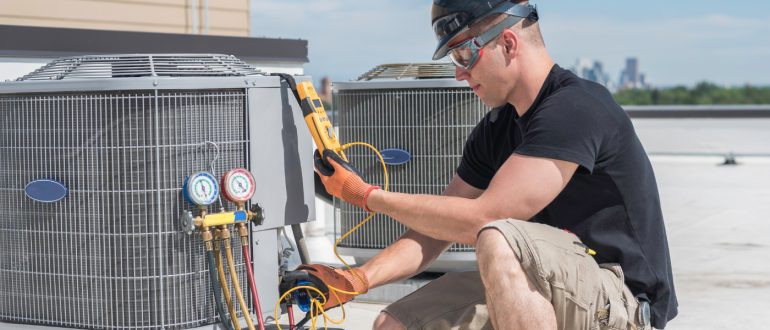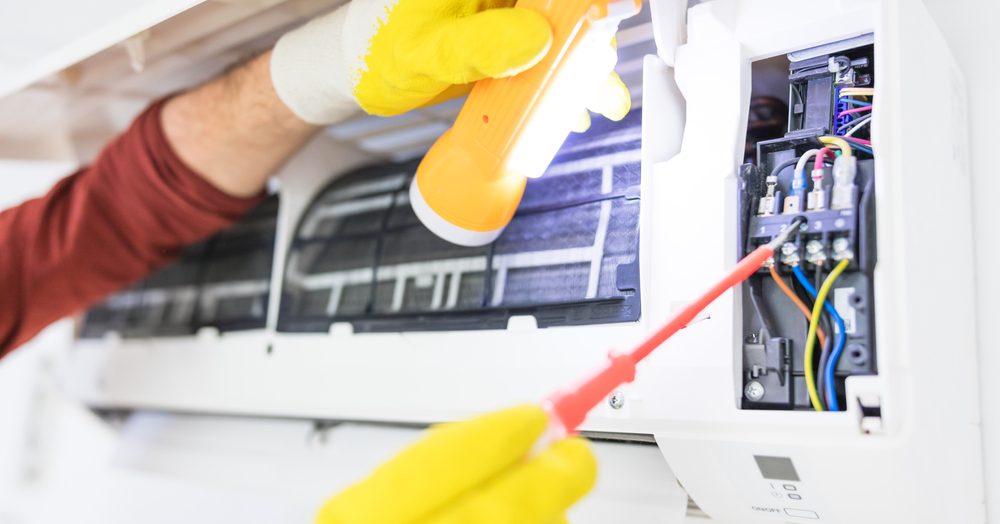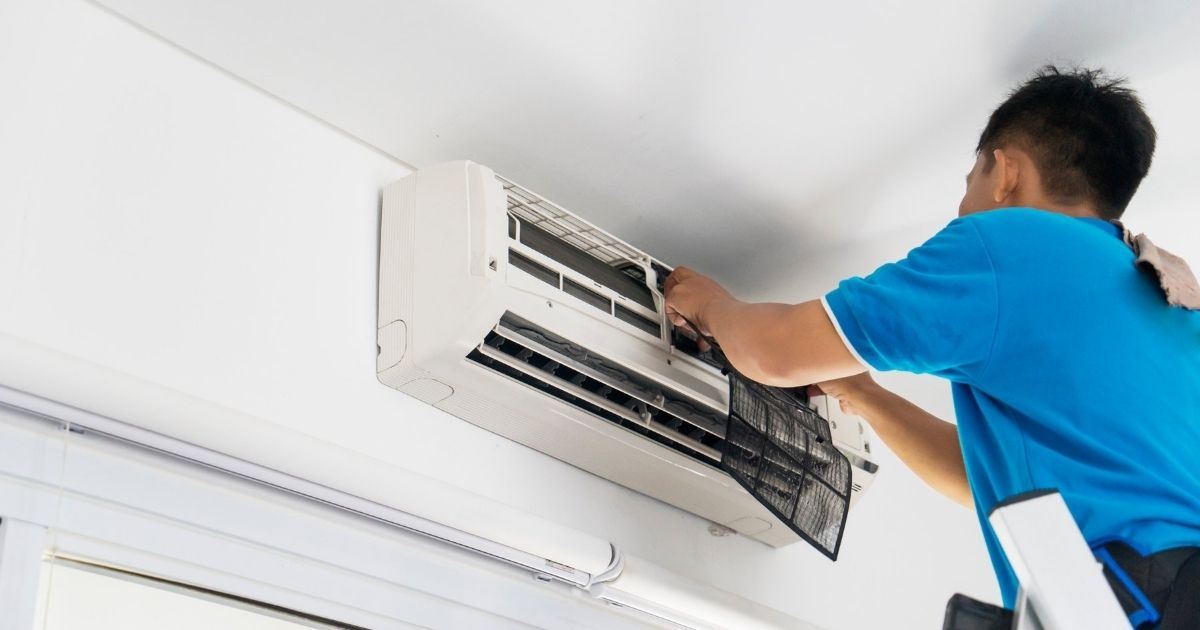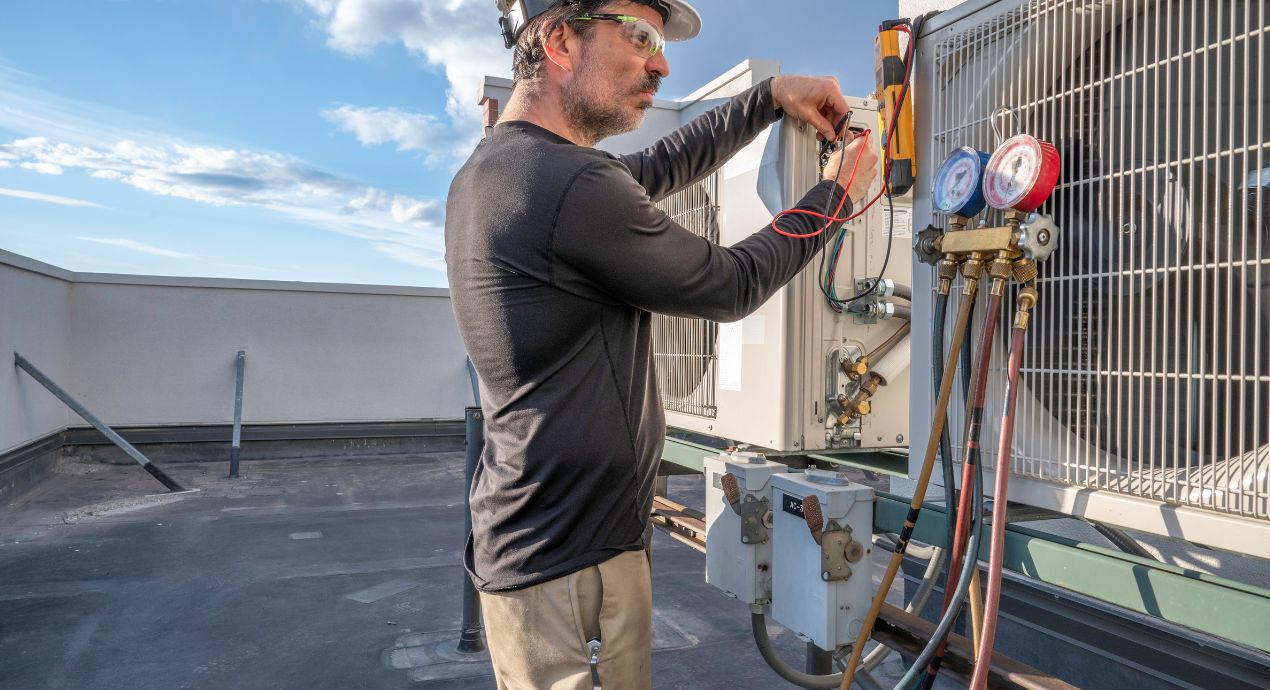
How To Repair HVAC Air Conditioner
Introduction
Maintaining high comfort levels in your home during extreme climate changes without a functional HVAC ((Heating, Ventilation, and Air Conditioning) system) is impossible.
That’s why having a well-maintained air conditioner is essential for every household, keeping you cozy and comfortable year-round. However, as mechanical devices, air conditioners are bound to experience issues over time, necessitating expensive repairs. Fortunately, with a little know-how, you might be able to fix your HVAC air conditioner and save some money on appliance repair in Sacramento. Thus, we have outlined in this comprehensive guide how to repair your HVAC air conditioner and avoid enlisting costly professional services.
Importance of a Well-functioning HVAC Air Conditioner
A functional HVAC air conditioner is crucial for several reasons:
Improved Air Quality:
A well-functioning air conditioning system filters out dust, allergens, and other pollutants to maintain a healthy indoor environment.
Enhanced Energy Efficiency:
A properly maintained air conditioner consumes less energy, lowering utility bills.
Comfort and Well-being:
A well-functioning air conditioner ensures consistent temperatures in your home, providing a comfortable and healthy living environment.
Prevents Property Damage
A malfunctioning AC unit can lead to water leaks or mold growth, causing damage to your home and belongings.
Signs of a Faulty Air Conditioner
Heed for signs that your air conditioning might not be running smoothly. Some common indications encompass:
- Reduced cooling efficiency
- Uneven cooling or temperature fluctuations
- Water leaks
- Strange noises or smells
- Reduced airflow
- Frozen evaporator coil
- Malfunctioning thermostat
Types of HVAC Air Conditioners
Air conditioning systems come in various designs suitable for different needs and preferences. Here’s a blurb of the four most common types of AC Units:
Central Air Conditioning System
A central AC system uses ductwork to distribute cool air throughout your home. It consists of an outdoor unit containing the compressor and condenser and an indoor unit housing the evaporator, air handler, and blower motor. Central air conditioners are the most common type of residential air conditioning system, providing consistent and efficient cooling. Reliable and cool, this machine is a must-have for creating the perfect living space.
Ductless, Mini-Split Air Conditioners
Ductless, mini-split air conditioners consist of an outdoor compressor and condenser unit connected to one or more indoor air handler units. These systems are perfect for homes without existing ductwork or for adding climate control to specific rooms.
Window Units
Window units are compact and easy-to-install air conditioners designed for single rooms. They fit directly into your window and feature a built-in thermostat and air filter. If you’re an apartment dweller or have limited space, this air conditioner is just what you need. It’s perfect for those who don’t require a full HVAC system yet want to enjoy the cool air.
Portable Units
If you’re always on the move around the house and can’t install a permanent cooling system, portable air conditioners could be your perfect match! These freestanding and self-contained units can quickly transform any room into a comfortable oasis without professional installation. They require a nearby window to vent hot air outside using a flexible exhaust hose. While they offer cooling for smaller spaces, they are generally less energy-efficient than other air conditioner types.

Common Issues and Troubleshooting
Check out this list of common air conditioner problems you might experience and how to fix them like a pro:
Reduced Cooling Efficiency
Is your air conditioner not cooling enough? No sweat! Try these simple steps, and you’ll be chilling in no time:
- Check and clean or replace the air filters.
- Ensure the outdoor unit is not blocked by debris or vegetation.
- Confirm that your thermostat is set correctly and functioning properly.
- Inspect the evaporator and condenser coils for dirt and clean them if necessary.
If the problem persists, consider contacting an HVAC technician for professional assistance.
To drill deeper into this, consider reading our blog “Why Isn’t My Ac Cooling Down My House.”
Uneven Cooling and Temperature Fluctuations
To address uneven cooling or temperature fluctuations:
- Ensure that no obstacles are blocking the air vents.
- Clean or replace the air filters.
- Check for faulty ductwork or leaks in the ducts.
- Consider updating your insulation or adding a zoning system for better temperature regulation.
Water Leaks
Water leaks in your HVAC system could indicate several problems:
- Inspect the condensate drain line for clogs and clear them.
- Check the evaporator coil for freezing caused by dirty air filters or low refrigerant levels.
- Verify the proper installation of your air conditioner to ensure the condensate drain pan isn’t overflowing.
Strange Noises or Smells
If you notice strange noises or smells emanating from your air conditioner:
- Check for debris in the outdoor unit and remove it if necessary.
- Inspect the indoor air handler for loose or damaged components.
- Clean the evaporator coil and check for mold growth, which can produce foul odors.
Reduced Air Flow
To fix reduced airflow in your HVAC system:
- Clean or replace the air filters.
- Examine the blower motor and fan for damage or wear, and replace them if needed.
- To ensure proper airflow, keep your ductwork free of debris or obstructions. Also, verify that the vents are open and unblocked for optimal ventilation in your space.
- Check for duct leaks and repair any damaged sections of ductwork.
Frozen Evaporator Coil
If you discover your evaporator coil is frozen, follow these steps to resolve the issue:
- Turn off your air conditioning system and let the coil defrost.
- Clean or replace the filters, as dirty air filters can cause restricted airflow, leading to freezing.
- Inspect the refrigerant levels, as low levels can also cause the coil to freeze. If you discover low refrigerant levels, contact a professional HVAC technician to add more refrigerant and check for any leaks in the system.
- Ensure your thermostat is functioning properly and set at an appropriate cooling temperature.
Malfunctioning Thermostat
A faulty thermostat can cause various issues with your HVAC system, including temperature fluctuations or your air conditioner not turning on. To fix a malfunctioning thermostat:
- Verify that the thermostat is preset to the correct mode (cooling or heating) and the desired temperature.
- Replace the batteries if they are old or weak.
- Check for any loose or damaged wiring connections and repair them as necessary.
- If your thermostat is old or damaged, consider a replacement with a new, programmable thermostat for better energy efficiency and temperature control.

Basic Maintenance for Preventing Issues
The key to a reliable HVAC system is good preventive care. Let’s explore some regular maintenance tasks that make a difference.
Regularly Replace or Clean your Air Filters
Make it a habit to frequently clean or replace your AC air filters. This way, you can keep indoor air clean while improving efficiency and extending the system’s lifespan.
Inspect and Clean Condensor Coils
Remember to check and clean your HVAC system’s condenser coils when the weather allows. Keeping them free from dust and debris will ensure a well-running system.
Prevent Water Damage: Unclog Condensate Drain Lines
Don’t let clogged condensate drain lines cause a mess! Regularly unclog and clean them to avoid any water overflow that could damage your property.
Find the Perfect Balance: Check Refrigerant Levels
An appropriate amount of refrigerant will keep your system operating at its best. It will help to maintain indoor comfort and energy efficiency.
Trust the Professionals: Regular Inspections and Tune-ups
Schedule routine inspections and tune-ups with a trusted HVAC technician. They’ll identify any lurking issues and keep your system in top shape.
Keep Outdoor Unit Clear of Debris
Tackling Basic HVAC Air Conditioner Issues
Let’s dive into how to handle common HVAC problems and discuss when it’s time to call in the professionals.
Do-It-Yourself or Call an Expert?
Before you grab the tool kit, consider the issue’s complexity and evaluate your technical skills. Some tasks are simple fixes, while others require the expertise of a certified technician.
Repairing or Replacing Air Filters
A quick tip to boost your system’s performance: keep an eye on those filters! Damaged or excessively dirty air filters can slow things down. But the solution is pretty straightforward- just give the filter a good cleaning, or go ahead and replace it altogether!
Unclogging and Cleaning Condensate Drain Lines
If you discover water accumulating around your air conditioner, that’s generally a sign of clogged condensate drains. You could try cleaning it yourself or seek help from a professional for a more thorough job. Either way, you’d be ensuring the optimal performance of your air conditioner.
Cleaning Evaporator and Condensor Coils
When your evaporator and condenser coils become dirty, it’s time to roll up your sleeves and give them a thorough cleaning. While, in some cases, hiring a professional to clean tricky components might be necessary, keeping your coils clean will improve the performance and efficiency of your system!
Recharging Refrigerant
Since low refrigerant levels negatively impact your system’s efficiency, it’s best to seek professional help to recharge it safely and legally.
Troubleshooting and Repairing a Faulty Thermostat
Having a faulty thermostat can create a slew of problems. Troubleshooting may be as simple as replacing batteries or as complex as replacing the whole unit. If in doubt, call an air conditioning repair Sacramento Professional.
Replacing Broken or Worn-out Parts
Over time, parts may wear out or break down and requires replacement. It’s essential to seek advice from a reliable HVAC technician who can evaluate the damage and suggest the right solution.

When It’s Time for a Replacement
Sometimes, air conditioners work perfectly fine without any issues. However, there comes a time when repairs and maintenance won’t do the trick, and the entire system will need to be replaced. Knowing what signs to consider and what to expect during the replacement process is crucial to saving you from overspending time and money or dealing with unnecessary frustrations. So let’s dive right in
Signs your HVAC Conditioner Needs to be Replaced
Here are some signals indicating it’s time for a new HVAC system:
Age: The average lifespan of an HVAC air conditioner is around 15-20 years. If your system is nearing that age, it may be more cost-effective to replace it rather than repair it.
Frequent Costly Repairs: If your system is experiencing the same issues repeatedly or breaks down often, replacement might be the best option.
Increased Energy Bills: As your system ages, it can lose efficiency, increasing energy consumption and higher bills.
Uneven Cooling: If some rooms are too hot or cold, it signifies an aging or poorly functioning system.
Excessive Noise: A noisy system is not only annoying. But it could also be a sign of a significant mechanical issue.
Choosing the Right HVAC System for Your Needs
Selecting the right HVAC air conditioner is crucial for optimizing comfort, efficiency, and cost. Consider the following factors when choosing a new system:
Size: An appropriately sized system will keep your home comfortable without using excessive energy. Consult an HVAC technician to have your home evaluated for proper system sizing.
Energy Efficiency: Look for systems with a higher Seasonal Energy Efficiency Ratio (SEER) rating, which suggests better energy efficiency.
Maintenance Requirements: Some systems have features that make maintenance easier, like washable filters or built-in diagnostics.
Budget: Research various makes and models that suit your budget without compromising quality and efficiency.
Installation Process and Timeline
Entrust the installation of your new HVAC air conditioner to a skilled professional who will: Properly size and choose the right equipment for your home. Remove your old system and install the new one safely. Test, balance, and commission the new system to ensure it operates efficiently and effectively.
The timeline for HVAC system replacement is subject to the availability of equipment and contractor schedule, as well as installation complexity. Typically, it can take between one day to a week for the process to be completed.
Conclusion
Importance of Maintenance and Timely Repairs
Regular maintenance and repairs are essential to maximize the lifespan and efficiency of your air conditioning HVAC. By neglecting these tasks, you may encounter preventable and expensive issues in addition to a shortened lifespan for your system. Thus, keep it running smoothly by maintaining it well.
Knowing When to Call a Professional for Help
When it comes to handling certain tasks, it’s pivotal to know when to bring in the professionals. Don’t be reluctant to seek assistance from certified HVAC technicians if you’re unsure of your abilities or the issue seems too complex to tackle alone. Engaging professionals to handle the task is prudent in such situations.

